How Metal Roofing Withstands Jacksonville’s Harsh Weather
Jacksonville’s climate can pose significant challenges for homeowners, particularly when it comes to roofing durability. Many still believe that asphalt shingle roofs are sufficient, but the reality is that metal roofing offers superior resilience against extreme pressure from storms and harsh weather conditions. This article will explore the unique climate challenges in Jacksonville, the advantages of metal roofing, and best practices for installation. Readers will gain valuable insights into how metal roofs can provide reliable protection, addressing concerns about longevity and maintenance in a turbulent environment.
Key Takeaways
- Jacksonville’s weather demands durable roofing solutions for effective protection against storms and humidity
- Metal roofing offers superior resistance to wind damage and reduces maintenance needs over time
- Understanding impact ratings is crucial for selecting roofing materials that withstand severe weather events
- Proper installation techniques and materials significantly enhance the longevity of metal roofing systems
- Homeowners report high satisfaction with metal roofing‘s performance during Jacksonville’s unpredictable climate
Understanding the Climate Challenges in Jacksonville
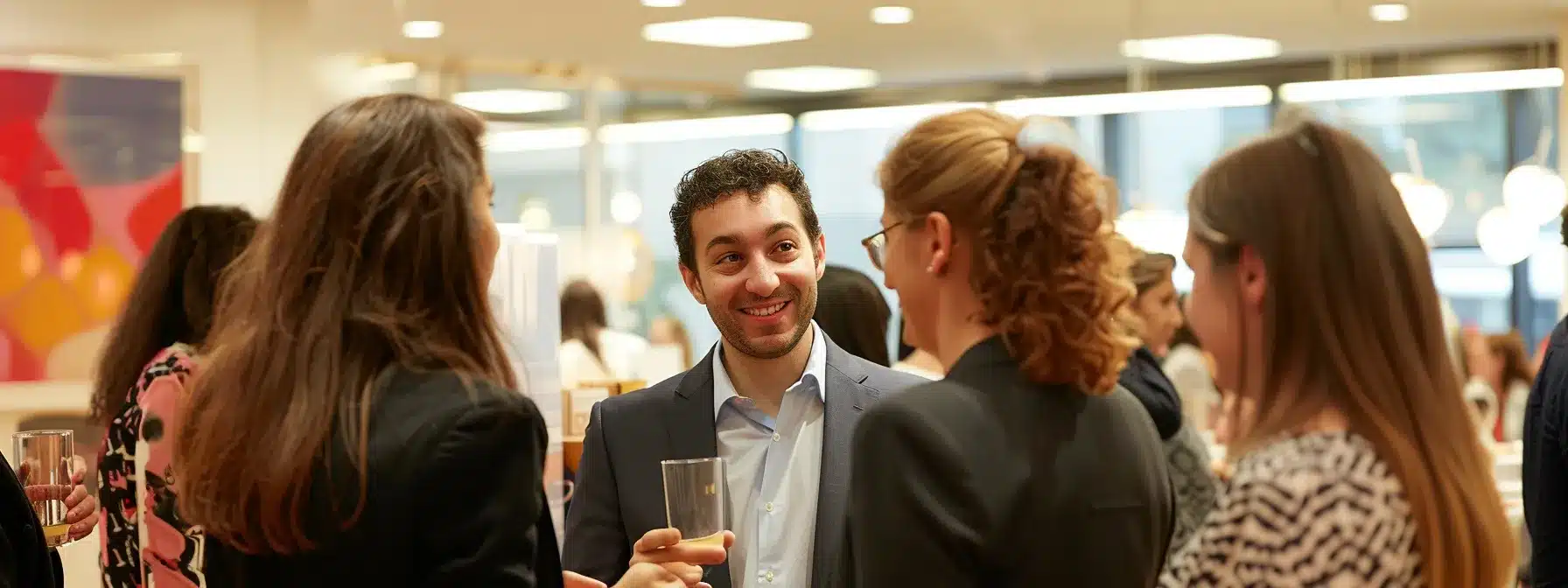
Jacksonville experiences a unique blend of weather challenges that influence roofing choices. High humidity and intense heat can affect the performance of various roofing materials, including metal roofing jacksonville, while frequent rainfall raises concerns about flooding risks. Understanding local building codes, particularly concerning deck and substrate requirements, is essential for effective roofing solutions. Insights into soffit ventilation and rainwater management are critical for durability and safety.
Overview of Jacksonville’s Weather Patterns
Jacksonville’s weather is characterized by high humidity, frequent thunderstorms, and intense heat, which presents significant challenges for roofing solutions. The summer months often bring extended periods of rainfall and strong winds that can test the durability of roofing materials. Consequently, homeowners seeking energy efficiency and long-term protection should consider how metal roofing, when paired with suitable siding and correctly installed fasteners, can withstand these harsh conditions effectively.
| Weather Factor | Impact on Roofing | Recommended Solution |
|---|---|---|
| High Humidity | Increases risk of mold and deterioration | Metal roof with proper ventilation |
| Frequent Thunderstorms | Potential for wind damage and water infiltration | Strong fasteners and water-resistant seams |
| Intense Heat | Can lead to thermal expansion and contraction | Reflective metal roofing to reduce energy consumption |
The Impact of Humidity and Heat on Roofing Materials
The combination of high humidity and intense heat in Jacksonville significantly influences the performance of roofing materials, particularly when it comes to metal roofing. The risk of mildew growth increases in humid conditions, which can compromise the integrity of traditional materials. Additionally, the region’s susceptibility to lightning strikes and wildfires underscores the necessity for durable roofing options that can endure extreme weather, while metal roofing‘s resistance to thermal expansion helps mitigate issues often associated with heavy snow or rain accumulation.
Examining Rainfall and Flood Risks
Jacksonville faces significant rainfall and flood risks that can severely impact roofing systems, particularly traditional roof shingles. Metal roofing offers a superior alternative, as its robust coating is designed to resist ultraviolet damage, thus enhancing longevity in wet conditions. Laboratory tests have shown that metal roofs maintain their integrity under repeated exposure to moisture, providing homeowners with peace of mind against water infiltration and the potential for significant structural damage.
| Weather Factor | Impact on Roofing | Recommended Solution |
|---|---|---|
| High Rainfall | Increases risk of water damage and mold growth | Metal roofing with a protective coating |
| Flood Risks | Potential for structural compromise | Elevated roofing solutions with seamless design |
| Ultraviolet Exposure | Degrades roofing materials over time | Reflective coatings on metal roofing |
Jacksonville faces harsh weather, and its residents need sturdy solutions. Metal roofing stands out as a reliable option to protect homes from the elements.
The Advantages of Metal Roofing in Harsh Weather
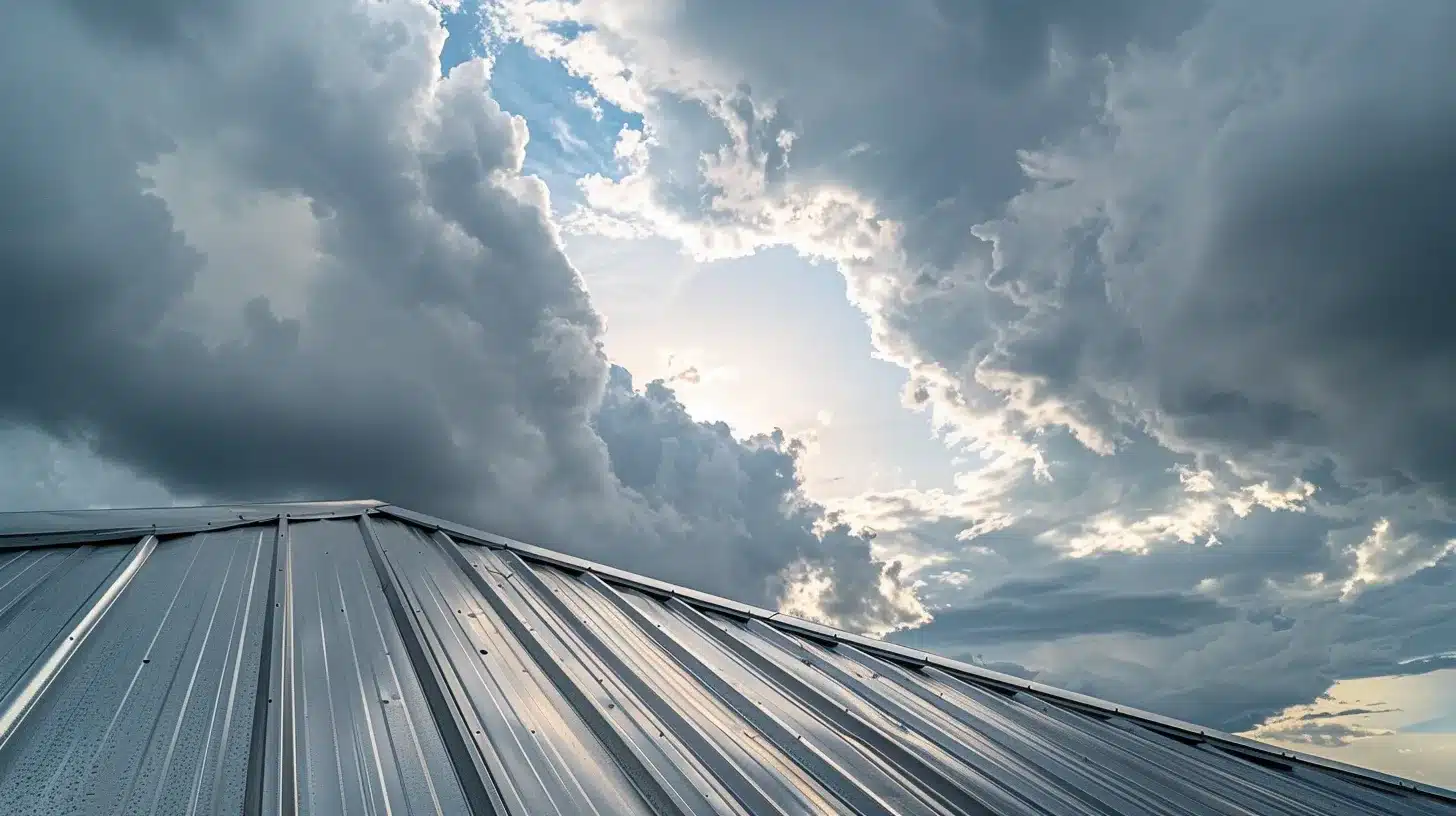
Metal roofing provides significant advantages in withstanding Jacksonville’s harsh weather conditions. Its resistance to wind and storm damage ensures that roofs remain intact during severe weather events. The performance of metal roofs during heavy rain and hail minimizes the risk of debris-related issues, contributing to sustainability. Moreover, their longevity in Florida’s climate can lead to potential savings on property insurance, offering a reliable solution for homeowners.
Resistance to Wind and Storm Damage
Metal roofing offers exceptional resistance to wind and storm damage, making it an ideal choice for Jacksonville’s unpredictable weather patterns. With the ability to withstand wind speeds of up to 140 miles per hour, metal roofs effectively mitigate the risk of roof failure during severe storms. Additionally, the longevity of metal roofing, which develops a protective patina over time, helps prevent issues such as mold growth, keeping homes safer and potentially reducing home insurance premiums for homeowners.
- Superior wind resistance minimizes storm damage.
- Patina development enhances durability and prevents mold.
- Long-lasting materials could lead to lower home insurance costs.
Performance During Heavy Rain and Hail
Metal roofing demonstrates exceptional performance during heavy rain and hail, effectively minimizing stress on structural components like fascia and batten. Unlike traditional roof tiles, which may crack or warp under such conditions, metal roofs are engineered to withstand impact and prevent water accumulation, ensuring a watertight seal. This reliability not only enhances the durability of the roof but also reduces maintenance concerns for homeowners facing Jacksonville’s frequent storms:
| Weather Condition | Impact on Roofing | Metal Roofing Advantage |
|---|---|---|
| Heavy Rain | Increased risk of leaks and water damage | Integrated water runoff design prevents accumulation |
| Hail | Possibility of dents or punctures in traditional materials | Impact-resistant surface minimizes damage |
| Wind Stress | Potential for lifted roofing materials | Secure fastening systems maintain stability |
Longevity of Metal Roofing in Florida’s Climate
The longevity of metal roofing in Florida’s climate is an essential consideration for homeowners in Jacksonville. Made from materials such as copper and zinc, metal roofs are highly resistant to corrosion and can withstand the intense heat and humidity characteristic of the region. Many metal roofing products come with extensive warranties, often lasting 30 years or more, providing peace of mind that the roof will endure the harsh weather conditions while retaining its structural integrity and aesthetic appeal, thus minimizing the need for frequent repairs or replacements.
Metal roofs endure the fury of storms, offering strength when it is most needed. Understanding impact resistance ratings reveals just how well these roofs can stand against nature’s might.
Impact Resistance Ratings and What They Mean
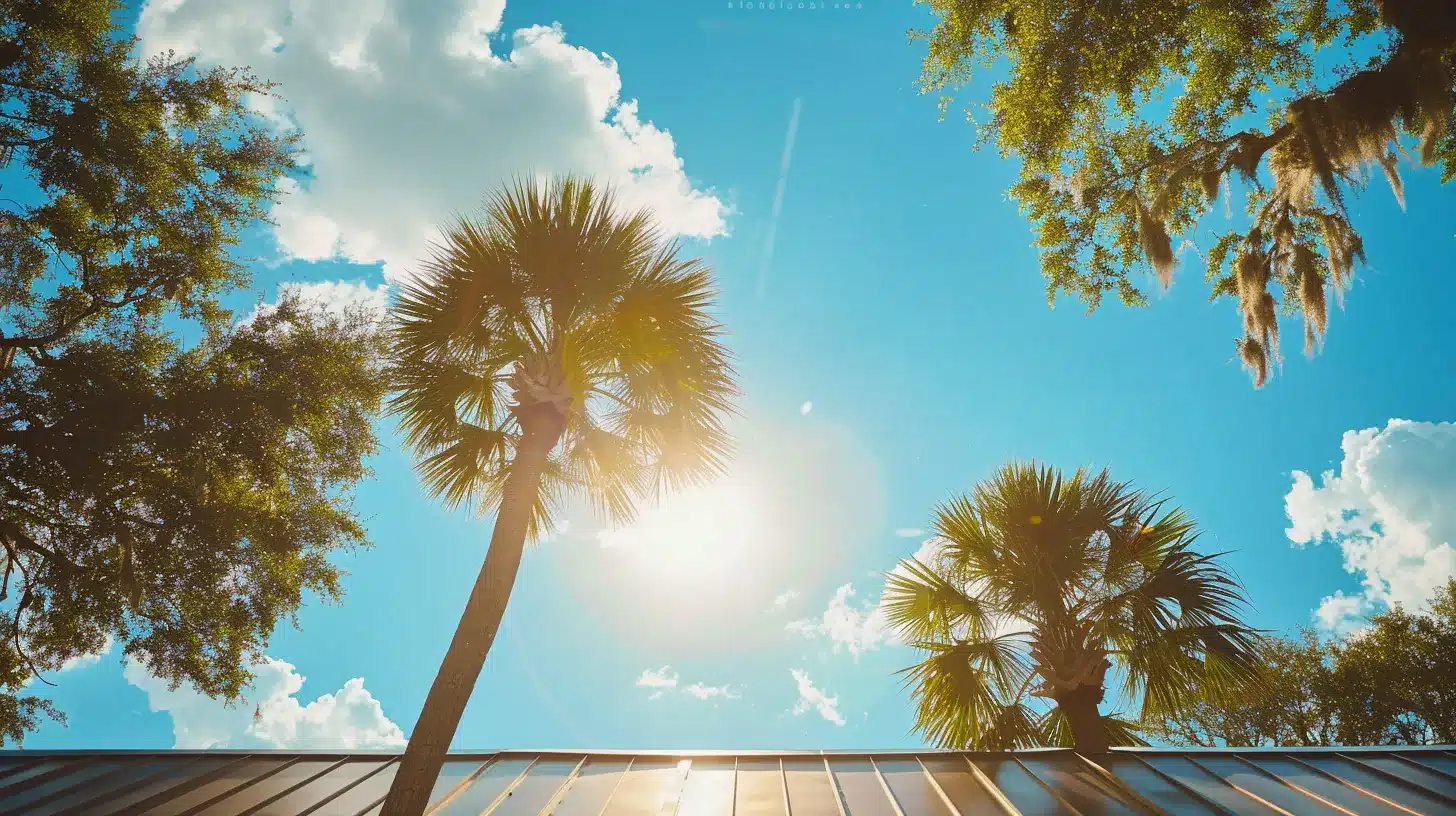
Understanding Class 4 impact ratings is crucial for homeowners in Jacksonville, as these ratings indicate a roofing material’s ability to withstand hail damage. Testing standards for metal roofing materials evaluate their resilience against varying hail sizes and frequencies, affecting choices on inspection, insurance policy considerations, and potential water damage risks. Fire safety also plays a critical role in selecting durable roofing options in this challenging climate.
Understanding Class 4 Impact Ratings
Class 4 impact ratings play a vital role in assessing how roofing materials, particularly metal options, endure extreme weather in Jacksonville’s climate. These ratings indicate a material’s ability to withstand severe weather events, such as hail storms, which can cause significant damage to less resilient roofing choices, like traditional tile. Understanding these ratings equips homeowners with the knowledge necessary to select roofing that protects their property from the adverse effects of harsh weather conditions.
| Impact Rating | Description | Significance in Jacksonville |
|---|---|---|
| Class 4 | Highest level of impact resistance against hail | Essential for enduring severe weather and protecting property |
| Class 3 | Good resistance but lower than Class 4 | May be suitable but less reliable during extreme storms |
| Class 2 | Moderate resistance | Not recommended for areas prone to hail damage |
Testing Standards for Metal Roofing Materials
Testing standards for metal roofing materials focus on the resilience of these systems against hail and other severe weather conditions. Key assessments, such as the Class 4 impact rating, ensure that materials are evaluated for their capacity to withstand significant impacts, providing critical information for homeowners regarding insurance policy benefits related to hail damage. By selecting hail–resistant roofing, homeowners can enhance the integrity of their eaves and overall structure, ensuring long-term protection against Jacksonville’s challenging climate.
Effects of Hail Size and Frequency on Roofing Choices
The size and frequency of hail present significant considerations for construction in Jacksonville, particularly when selecting roofing materials. Hail impacts can vary widely; therefore, choosing metal roofing aligns well with the demand for toughness, offering superior resistance to potential damage compared to traditional materials. Additionally, with increasing storm intensity, opting for environmentally friendly metal roofing ensures performance against harsh weather conditions, including wind, thus protecting homeowner investments while promoting sustainability.
Understanding impact resistance ratings lays the groundwork for ensuring that roofs withstand the elements. Next, exploring the best installation practices will reveal how to secure that durability for the long haul.
Installation Best Practices for Durability
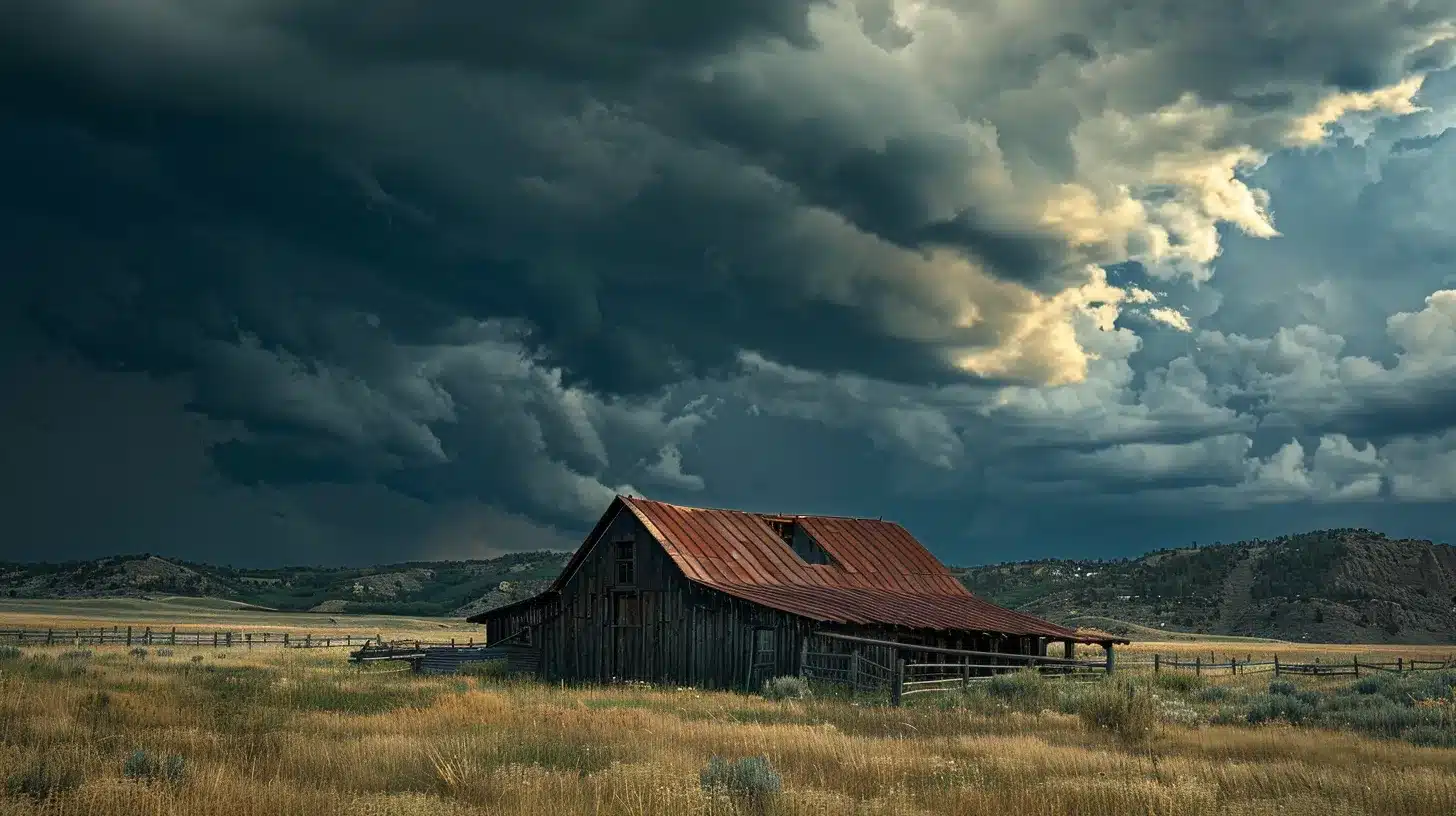
Choosing the right fasteners and installation techniques is crucial for enhancing the durability of metal roofing in Jacksonville’s harsh weather. Proper application of sealants and underlayments plays a significant role in preventing leaks, while regular maintenance tips can further extend the lifespan of roofing materials. Each of these components is essential for ensuring long-lasting protection against the elements.
Choosing the Right Fasteners and Techniques
Selecting appropriate fasteners and installation techniques is integral to the longevity and performance of metal roofing in Jacksonville’s challenging climate. High-quality galvanized or stainless steel fasteners are recommended, as they offer resistance to rust and corrosion, thereby enhancing the roof‘s durability. Employing proper sealing methods and ensuring that fasteners are installed with the right torque will further secure the roofing system against high winds and heavy rainfall, ultimately safeguarding the investment for homeowners.
Importance of Sealants and Underlayments
Sealants and underlayments are critical components in the installation of metal roofing systems, particularly in areas like Jacksonville, where exposure to strong storms and high humidity presents unique challenges. Quality sealants help create a watertight barrier, preventing water infiltration and minimizing the risk of mold and structural damage. Additionally, effective underlayments provide an extra layer of protection against moisture and weather extremes, ensuring that metal roofs perform optimally under harsh conditions:
| Component | Function | Benefits |
|---|---|---|
| Sealants | Creates a waterproof barrier | Prevents water infiltration and mold growth |
| Underlayments | Serves as an additional moisture barrier | Enhances protection against weather extremes |
| Installation Techniques | Ensures proper application and secure fastening | Increases durability and lifespan of the roof |
Regular Maintenance Tips to Enhance Longevity
Regular maintenance is crucial for prolonging the lifespan of metal roofing in Jacksonville’s challenging climate. Homeowners should conduct periodic inspections to identify any signs of wear, such as loose fasteners or damaged sealants, which can compromise the roof‘s integrity. Cleaning debris from the roof and gutters can prevent water accumulation, reducing the risk of leaks and potential mold growth, thereby ensuring the metal roofing system continues to perform effectively against harsh weather conditions.
Even with the best installation, the choice of materials weighs heavily on durability. Next, we will look closely at how metal roofing stacks up against other options in the marketplace.
Comparative Analysis of Metal Roofing and Other Materials
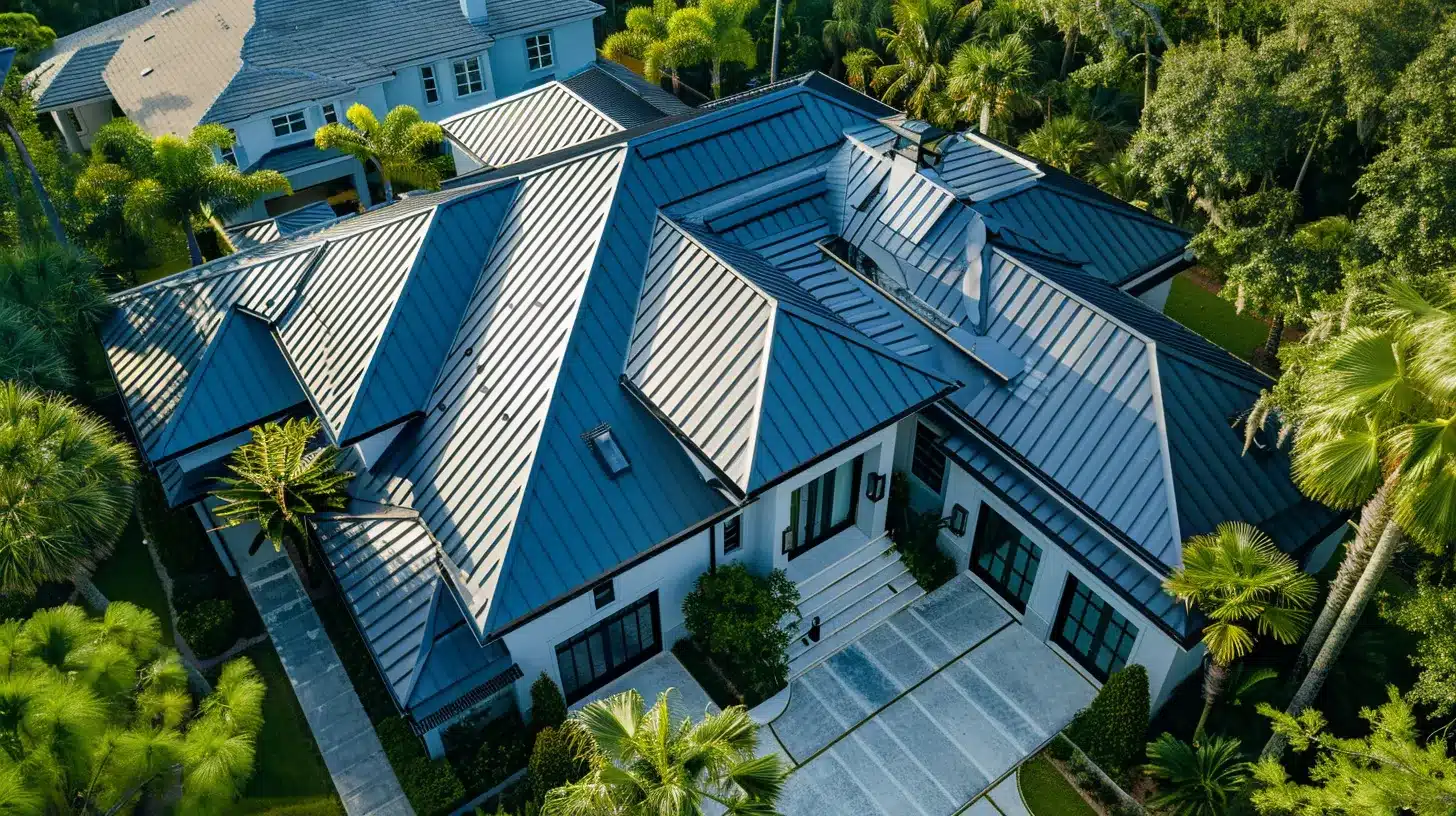
This section evaluates the pros and cons of different roofing materials in relation to the harsh weather conditions in Jacksonville. First, it examines the advantages and disadvantages of asphalt shingles compared to metal roofing. Next, it assesses the effectiveness of tile and slate roofs in tropical climates. Finally, a cost-benefit analysis of metal roofing reveals its long-term value and sustainability for homeowners.
Pros and Cons of Asphalt Shingles vs. Metal
When comparing asphalt shingles to metal roofing, each option presents distinct advantages and disadvantages, particularly in the context of Jacksonville’s challenging climate. Asphalt shingles are typically less expensive and easier to install, making them a popular choice among homeowners. However, they offer a shorter lifespan and are more susceptible to damage from storms and high humidity. In contrast, metal roofing provides superior durability and wind resistance, essential for withstanding Jacksonville’s severe weather, but comes with a higher initial cost and may require specialized installation techniques to ensure optimal performance:
| Roofing Material | Pros | Cons |
|---|---|---|
| Asphalt Shingles | Affordable; Easy installation; Variety of styles | Short lifespan; Prone to storm damage; Requires regular maintenance |
| Metal Roofing | Long-lasting; Excellent wind resistance; Minimal maintenance | Higher upfront cost; Specialized installation required |
Evaluating Tile and Slate Roofs in Tropical Climates
Tile and slate roofs can be appealing choices in tropical climates, including Jacksonville, due to their traditional aesthetics and natural insulating properties. However, these materials often struggle under the intense humidity and heavy rainfall characteristic of the region. While they offer some degree of durability, they are prone to cracking and can allow water infiltration, making metal roofing a more reliable option for homeowners seeking long-term protection against Jacksonville’s unpredictable weather:
- Tile roofs can crack under extreme conditions.
- Slate roofs are heavy and may require additional structural support.
- Metal roofing resists corrosion and offers superior durability.
Cost-Benefit Analysis of Metal Roofing
When considering the cost-benefit analysis of metal roofing in Jacksonville, homeowners often recognize the higher initial investment as a worthwhile trade-off for its long-term benefits. Metal roofs, with their longevity and reduced maintenance needs, can result in significant savings over time, particularly in an area prone to severe weather. For example, while traditional roofing materials might require frequent repairs or replacements, metal roofing‘s durability ensures that homeowners spend less on upkeep and are better protected against the elements:
- Higher initial cost but long-lasting performance.
- Lower maintenance requirements save money over time.
- Enhanced durability reduces repair frequency.
Metal roofing stands strong against the elements. Now, let’s see how it performs in real situations right here in Jacksonville.
Real-Life Case Studies of Metal Roofing in Jacksonville
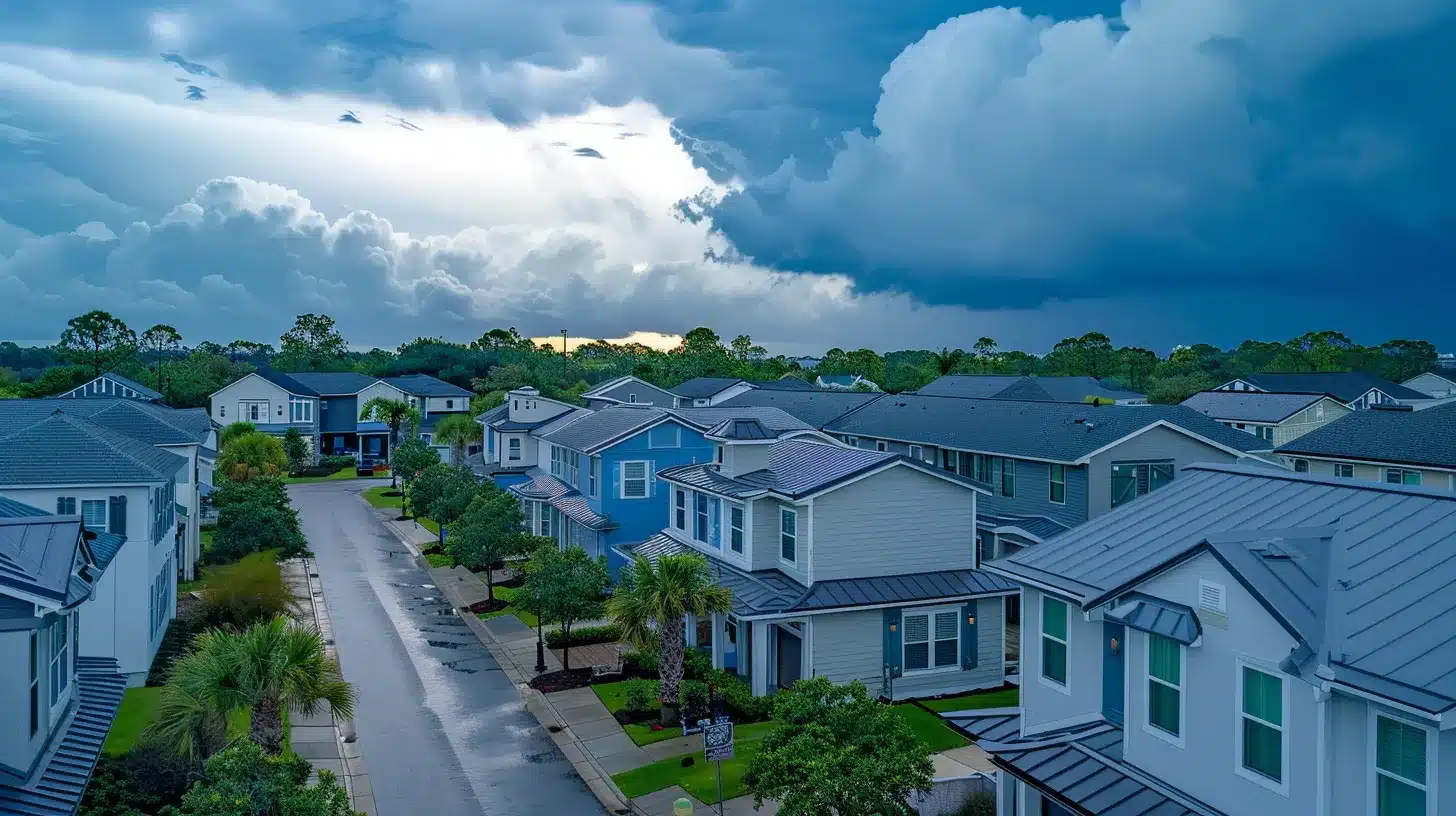
Homeowners in Jacksonville have shared success stories highlighting the effectiveness of metal roofing during severe weather events. These accounts offer valuable lessons learned from various installations, emphasizing the importance of material choice for durability. Community feedback on metal roofing performance underscores high satisfaction levels, reinforcing its reputation as a reliable option for protection against Jacksonville’s challenging climate.
Success Stories of Homeowners in Severe Weather
Homeowners in Jacksonville have reported remarkable experiences with metal roofing during severe weather events, showcasing its effectiveness in protecting properties. For instance, a family noted that their metal roof remained intact following a significant hurricane, while neighboring homes with traditional shingles suffered extensive damage. These success stories highlight metal roofing‘s resilience against high winds and heavy rainfall, reaffirming its position as a reliable option for safeguarding homes in Jacksonville’s unpredictable climate.
Lessons Learned From Metal Roof Installations
Lessons from metal roof installations in Jacksonville emphasize the importance of selecting high-quality materials and employing skilled contractors to ensure longevity and performance in extreme weather. Homeowners have learned that proper installation techniques, including secure fastening and effective sealing, significantly enhance resistance to wind and water infiltration. These real-world experiences demonstrate that investing in metal roofing not only provides immediate protection but also contributes to sustained peace of mind during severe storms.
Community Feedback on Performance and Satisfaction
Community feedback on metal roofing in Jacksonville emphasizes high satisfaction levels among homeowners, particularly in regards to performance during extreme weather. Many residents report significantly reduced damage and maintenance needs compared to traditional roofing materials, which often fail under harsh conditions. Their experiences underline the effectiveness of metal roofing as a reliable solution for safeguarding homes against Jacksonville’s challenging climate:
- Homeowners describe metal roofs as virtually untouched after passing storms.
- Positive reviews highlight lower maintenance costs over time.
- Residents appreciate the energy efficiency benefits provided by metal roofing.
Conclusion
Metal roofing stands out as a resilient choice for homeowners in Jacksonville, effectively addressing the region’s unique weather challenges. Its impressive durability against high winds, heavy rainfall, and intense heat significantly reduces the risk of storm damage and water infiltration. By opting for metal roofing, homeowners not only enhance their property’s protection but also benefit from long-term savings and lower maintenance costs. Investing in this roofing solution ensures lasting safety and peace of mind in an area prone to severe weather conditions.

